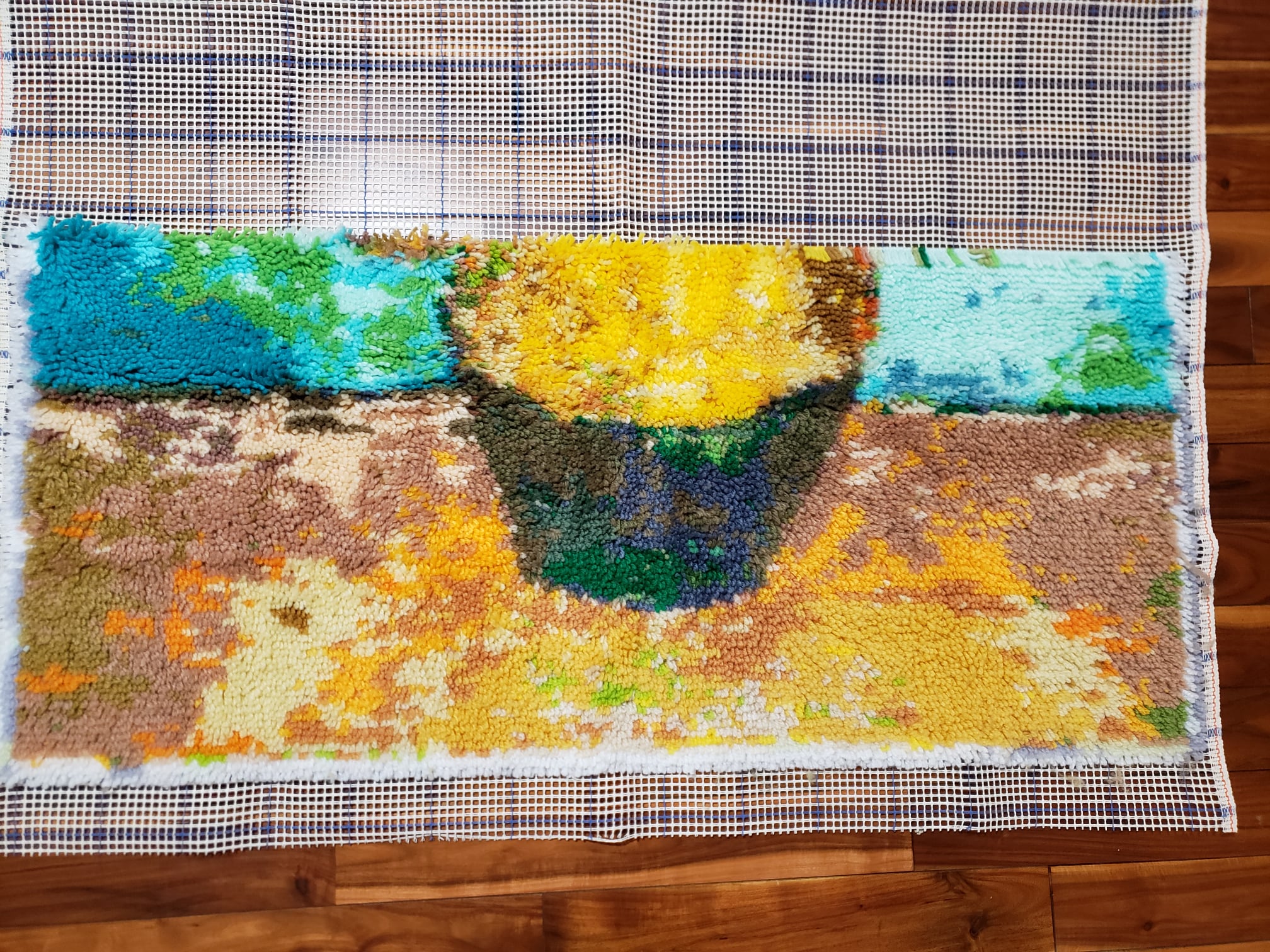Don’t Pretend, Just Persevere! (Hebrews 11)

Good morning! Today we’re continuing our slow journey through Hebrews 11, the hall of faith, the hall of heroes. Here’s our key verse:
Hebrews 11:21 (NLT) – “It was by faith that Jacob, when he was old and dying, blessed each of Joseph’s sons and bowed in worship as he leaned on his staff.”
Jacob was one of the big three patriarchs, the younger of Isaac’s two sons and a grandson of Abraham. We know that the name Jacob sounds like the Hebrew word for “heel.” We have to wonder whether it was before he was named that Jacob’s name also sounded like the Hebrew word meaning “deceiver,” or if that word acquired its meaning because of what Jacob did early in life.
We can read the account of Jacob in Genesis 25, starting at verse 19:
(Genesis 25:19-26, NLT)
“This is the account of the family of Isaac, the son of Abraham. When Isaac was forty years old, he married Rebekah . . . Isaac pleaded with the LORD on behalf of his wife, because she was unable to have children. The LORD answered Isaac’s prayer, and Rebekah became pregnant with twins. But the two children struggled with each other in her womb . . . And when the time came to give birth, Rebekah discovered that she did indeed have twins! The first one was very red at birth and covered with thick hair like a fur coat. So they named him Esau. Then the other twin was born with his hand grasping Esau’s heel. So they named him Jacob. Isaac was sixty years old when the twins were born.”
We’re not told how old Rebekah was when she became a mother. We do know that Isaac was 40 when he and Rebekah got married and that he was 60 years old when he became a dad. They had been married for 20 years before the kids came along. That’s a long time in any culture. More than likely, both parents were asked countless times by family and friends, “So, when are you guys going to have kids?” They probably dreamed for years of what kind of relationship they’d like to have with their kids, what they’d enjoy doing together. Finally, after much pleading in prayer, the LORD answered their prayers and blessed them with two very healthy children.
Did you know that twins today, even with all of our modern nutrition, vitamins, and medical advances, weigh on average 5.5 pounds each, which is 1.5 pounds less than the average single baby? It might be because more than half of twin babies are born before they are full-term, on average 4 weeks earlier than single babies. Our son Michael was born 7 weeks early, with a birth weight that was less than half that of his older brothers. It took him several years to catch up developmentally, though you wouldn’t know it now! We don’t see any evidence of underdevelopment in the case of Jacob & Esau. Esau had none of that soft downy hair we often associate with newborns – he was so hairy that the writer of Genesis likens his appearance to a fur coat. And Jacob was incredibly strong as he was being born, strong enough to be hanging onto his brother’s heel.
The family-of-two doubled in a day, and now there are two parents, two kids.
(Genesis 25:27-28, NLT)
“As the boys grew up, Esau became a skillful hunter. He was an outdoorsman, but Jacob had a quiet temperament, preferring to stay at home. Isaac loved Esau because he enjoyed eating the wild game Esau brought home, but Rebekah loved Jacob.”
According to the Journal of Family Psychology, 74% of moms and 70% of dads reported preferential treatment toward one child. We’re not surprised to read in this Biblical account that Isaac and Rebekah each preferred to spend time with one of their children over the other. The Bible is so trustworthy and relatable for many reasons, one of which is because it makes no effort to tidy up the messy parts of stories like this. One commentary says that the father was peculiarly attached to the one, and the mother to the other. Moses, who wrote this account in the book of Genesis about 450 years later, tells us that Mom Rebekah preferred her shepherd son over her hunter son. Modern psychology has much to say about this kind of thing! We have all experienced or observed the disastrous fallout from favoritism in families, churches, workplaces, and government. After realizing that God had given the Good News and the Holy Spirit to all people, the apostle Peter confidently states in Acts 10:34 (NLT) – “I see very clearly that God shows no favoritism.” Because God in Christ has broken down all barriers that separate us from Him or from one another, He also invites us to avoid showing favor to anyone on account of rank, family, wealth, or partiality arising from any cause. Even if we don’t know the end of Jacob’s story yet, we know that the parents’ favoritism, which is another way of saying that they each lacked love for the child they did not favor, isn’t going to bear good fruit in the long run.
The story continues:
(Genesis 25:29-34, NLT)
“One day when Jacob was cooking some stew, Esau arrived home from the wilderness exhausted and hungry. Esau said to Jacob, ‘I’m starved! Give me some of that red stew!’ . . . ‘All right,’ Jacob replied, ‘but trade me your rights as the firstborn son.’ ‘Look, I’m dying of starvation!’ said Esau. ‘What good is my birthright to me now?’ But Jacob said, ‘First you must swear that your birthright is mine.’ So Esau swore an oath, thereby selling all his rights as the firstborn to his brother, Jacob. Then Jacob gave Esau some bread and lentil stew. Esau ate the meal, then got up and left. He showed contempt for his rights as the firstborn.”
Let’s skip forward to Genesis 27 to read even more of the story:
(Genesis 27:1-10, NLT)
“One day when Isaac was old and turning blind, he called for Esau, his older son, and said, ‘My son.’ ‘Yes, Father?’ Esau replied. ‘I am an old man now,’ Isaac said, ‘and I don’t know when I may die . . . Prepare my favorite dish, and bring it here for me to eat. Then I will pronounce the blessing that belongs to you, my firstborn son, before I die.’ But Rebekah overheard what Isaac had said to his son Esau. So when Esau left to hunt for the wild game, she said to her son Jacob, ‘Listen. I overheard your father say to Esau, “Bring me some wild game and prepare me a delicious meal. Then I will bless you in the LORD’s presence before I die.” Now, my son, listen to me. Do exactly as I tell you. Go out to the flocks, and bring me two fine young goats. I’ll use them to prepare your father’s favorite dish. Then take the food to your father so he can eat it and bless you before he dies.’”
The deceptive plan is hatched by Rebekah and then carried out by Jacob, who, sadly, learns to play pretend to get what he wants. The story goes on:
(Genesis 27:35-36, NLT)
“Isaac said [to Esau], ‘Your brother was here, and he tricked me. He has taken away your blessing.’ Esau exclaimed, ‘No wonder his name is Jacob, for now he has cheated me twice. First he took my rights as the firstborn, and now he has stolen my blessing.”
Jacob started out early in life stealing someone else’s (Esau’s) blessing not once, but twice. In the most significant ways possible. Why? Maybe he thought there wasn’t enough to go around. Maybe he thought someone else got a better deal than he did. Maybe he was afraid of missing out. Maybe he was unduly influenced by bad advice. Maybe he learned some pretty bad vices at home. Maybe he was just plain selfish. Maybe he lacked faith in God. Maybe he didn’t believe that God would take care of him. Maybe he thought that playing pretend was preferable to working hard and persevering.
Considering our key verse for today, does Jacob at this point in our story sound like the kind of person who goes around blessing other people? He is known in Genesis 25 & 27 as one who steals blessings. Worse, he stole from his closest family. He caused pain. He caused division. He caused heartbreak.
And yet, in our verse for today, Hebrews 11:21 (NLT) – “It was by faith that Jacob, when he was old and dying, blessed each of Joseph’s sons and bowed in worship as he leaned on his staff.”
How did the Jacob who stole blessings become the Jacob who gave blessings? We don’t know how old Jacob and Esau were when Jacob stole Esau’s birthright and blessing, but we do know that Jacob died at the age of 147. So we’re looking at a period of about 100 years for Jacob-the-stealer-of-blessings to become Jacob-the-giver-of-blessings. Have you ever tried to overcome a bad habit in your life and beaten yourself up about it because it was harder and took longer than you thought? We’re talking here about some pretty major character flaws – deception, manipulation, lying, stealing – deeply ingrained, encouraged by a parent, woven into the very fabric of Jacob’s character. We saw what he was like as a young man. Now let’s fast forward to when he’s “old and dying.” He’s had a very long time to think about his choices. He’s reaped consequences. He’s been humbled by life. He’s learned some things the hard way.
But significantly, He’s encountered God. He’s changed from living for himself to dedicating his entire life to God, making a promise to give God his full devotion and the first and best part of his possessions. This change in his life wasn’t perfect. He made more mistakes. He stumbled sometimes. But the direction of his life changed clearly from focusing on self to focusing on God. Interestingly, God promised to bless him before he turned his life around. At age 77 and single, he was actually running away from his family after deceiving Esau and was sound asleep the first time that Scripture records God speaking to him. God promised Jacob in Genesis 28 some pretty huge and awesome blessings:
- descendants as numerous as the dust of the earth
- all families of the earth being blessed through him and his descendants
- the presence of God wherever he went
- God’s protection wherever he went
So Jacob arrived in a new country, moved in with some relatives, and started a new life. At age 84, Jacob got busy having kids, fathering twelve children over the next 7 years, having a 13th child later on. You know, I’ve always thought in my head that Jacob was quite a bit younger when the next part of our story happened. But at the ripe old age of 97, Jacob moved his family to a different country, and the story continues:
Genesis 32:24-30 (NLT)
“Jacob [was] all alone in the camp, and a man came and wrestled with him until the dawn began to break. When the man saw that he would not win the match, he touched Jacob’s hip and wrenched it out of its socket. Then the man said, ‘Let me go, for the dawn is breaking!’ But Jacob said, ‘I will not let you go unless you bless me.’ ‘What is your name?’ the man asked. He replied, ‘Jacob.’ ‘Your name will no longer be Jacob,’ the man told him. ‘From now on you will be called Israel, because you have fought with God and with men and have won.’ ‘Please tell me your name,’ Jacob said. ‘Why do you want to know my name?’ the man replied. Then he blessed Jacob there. Jacob named the place Peniel (which means ‘face of God’), for he said, ‘I have seen God face to face, yet my life has been spared.’”
You would think that the best time in life to wrestle would be when you’re young and strong and energetic. But God waited until Jacob was almost 100 years old to engage in an all-night wrestling match, ensuring that no one could ever guess the outcome! God had already promised to bless Jacob beyond his wildest dreams. But now God gave Jacob a new name. Names in Hebrew signify the very nature and identity of an individual. God not only renamed Jacob but transformed him inside and out, because Jacob had fought with both God and people and had overcome, won, prevailed, persevered.
The prophet Hosea summarizes Jacob’s story well:
Hosea 12:3-6 (NLT) – “Even in the womb, Jacob struggled with his brother; when he became a man, he even fought with God. Yes, he wrestled with the angel and won. He wept and pleaded for a blessing from him. There at Bethel he met God face to face, and God spoke to him—the LORD God of Heaven’s Armies, the LORD is his name! So now, come back to your God. Act with love and justice, and always depend on him.”
Jacob’s story encourages us to persevere, when we are tempted to give up, to come back to God, act with love and justice, and always depend on Him.
In this long night of struggle, God transformed Jacob from one who played pretend and stole blessings to one who could persevere and become a channel for God’s blessings. He even gave him a hip injury so he wouldn’t forget. Jacob was no longer the crafty schemer plotting for his own advantage. In encountering God, Jacob was now humbly able to entrust his very life and all that he had into God’s hands. He could now bless others generously and authentically, as detailed in Genesis 47-49. He blessed Pharaoh, he blessed Joseph’s sons, and he blessed all of his children and their tribes “with an appropriate message.” Our Hebrews verse tells us that he blessed each of Joseph’s sons and bowed in worship. Jacob no longer played pretend or stole other’s blessings. He persevered in trusting God and became a channel through which God’s blessings could flow to others.
The Apostle Paul tells us in Ephesians 3:20 (NLT) that God “is able, through his mighty power at work within us, to accomplish infinitely more than we might ask or think.” Why don’t we see that all the time in ourselves and in every other person on the planet? God’s desire is to bless us, to give to us good gifts, to work within us, to do that which is good, holy, and beautiful, to accomplish infinitely more than we might ask or think. In the mystery of the Kingdom of God, we humans are the vessels through which God chooses to accomplish His purposes on the earth. He wants to work through us in spite of our frailties, imperfections, weaknesses, and limitations. God invites us to engage in His purposes hand-in-hand with Him. We don’t have to play pretend or try to make things happen. We can persevere in trusting God in every aspect of our lives, and become channels through which God’s blessings can flow to others.
Don’t Pretend, Just Persevere!




